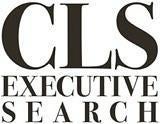“A leader takes people where they want to go. A great leader takes people where they don’t necessarily want to go, but ought to be.” ~ Rosalynn Carter
For many years, law firms were administered by the lawyers themselves – often through part-time managing partners or management committees. As firms grew bigger and operational demands increased, law firms started to use non-lawyer administrators to take care of these details. Over the past decade, as competition increased, technology evolved and pressures for cost and operational efficiencies became greater, law firms began to introduce non-lawyer leadership in areas like finance, administration, human resources, technology, marketing, professional development and training, and strategic planning.
Today, the most successful law firms understand the need to be effectively and efficiently run like businesses - assigning responsibility for this aspect of the firm to “C-level” executives. This puts the business side of a law firm’s administration into the hands of business professionals who are trained and experienced in leading and directing the various administrative departments within a firm and can act quickly and decisively in the firm’s best interest. The end result is that experienced management professionals enable attorneys to do what they do best - practice law.
This article will provide insight into what top law firms’ business management individuals and teams should ideally look like as firms strive to be the most competitive in their practice areas and cost-efficient in running their businesses. Cost-efficiency should not, however, include cutting corners on C-level salaries, as this would limit the pool of the most talented C-level executives. In fact, firms should be investing more in these positions so that their attorneys - the revenue producers - are doing just that throughout the business day, producing revenue.
First, your business goals should drive your business management needs. Law firms striving to provide top-quality client support should have revenue producing attorneys and a top-quality management structure in place. This concept is plain and simple - your business management team should be directly aligned with your business goals. So how do you assemble a top-notch management team?
Experienced executives have advanced degrees (e.g., MBA or higher) and/or a CPA certificate. It is not acceptable to accept anything less - and you don’t have to if you are willing to pay for top talent.
In addition to strong communication, negotiation and social skills, C-level executives should have many years of management experience at a senior level. Their experience should enable them to work comfortably with all aspects of management principles and practices. This includes financial analysis of the firm, human relations, technology integration, and the effective operation of firm facilities. C-level executives should also be familiar with all aspects of the controllership functions and have a mastery in management alternatives. Furthermore, C-level executives should have expertise in strategic and long-term planning for the dynamic growth of the firm.
As officers of the firm, C-level executives should serve on all internal committees and have a strong voice in all management discussions and decisions. Beyond simply being a good manager, C-level executives should have a strong command of people management practices and exemplify the role of a great leader.
When hiring C-level executives, you need to be very careful. Many managers have all the right work and educational qualifications, appropriate law firm experience and know exactly what to say and how to say it throughout your extensive interviewing process. However, a wrong hire, even if he/she appears to be a superstar on paper and well-versed in interviewing, can discourage your entire team and wreak havoc on your firm in a relatively short period of time.
The managerial leaders that you need to have in place must immediately click with people above, below and all around them. They must be able to fit into your firm’s culture and, if necessary, change it in a way that is in line with your business goals. They know how to navigate through a law firm partnership or similar environment where there are many owners of the business in your face every single day and, many times, who have conflicting goals and agendas.
You need to target leaders who know how to connect with and motivate people in slow, challenging and changing times. They must understand cultural and generational differences and drivers and capitalize on people’s strengths while tackling weaknesses through the creative and strategic use of other team members’ skills and experiences. They have to refrain from micro-managing, yet be able to quickly, decisively and successfully change the course of any game plan in the midst of chaos and confusion (often times found in law firms trying to meet the ever-changing and stressful demands of their clients and the attorneys servicing them). They have a knack for creating positive work environments in even the most difficult circumstances.
Lawyers, just as they are not trained and experienced at running the business, should not try sourcing qualified candidates for C-level positions. Instead, they should consider using a retained executive search firm. A common mistake many firms make is to delegate the initial screening and interviewing process for C-level executives, including law firm Executive Directors and COOs, to Human Resources Directors or HR Officers. Think about it – isn’t it a conflict, given the direct reporting relationship of the HR Director/Officer to the Executive Director, to ask your HR Director/Officer to make the first round of decisions regarding which candidates should move forward in the recruiting process? It can be uncomfortable for both the interviewer and interviewee getting through the questions crafted to determine whether the candidate is going to be the great boss that he or she wants. Firms are better served by providing an opportunity for the HR leader and any other senior managers to meet the top one or two candidates after the firm has narrowed the field to the candidate(s) that best align(s) with the firm’s expectations of a great leader. C-level leaders, because of their broad range of skills and many years of exposure to and experience with business management challenges, are able to command compensation packages comparable to mid-level partners in a firm. Partners often comment that, “If we are going to pay this much money for a C-level manager, perhaps we can do the work ourselves.” Firms then consider the option of having their managing partner(s) take on this role, delegating functional area responsibility to one or a few partners who have some time on their hands or delegating the entire responsibility to a management committee.
In response to this strategy, I share this insight: attorneys do not go to law school to learn how to manage a business. Although, some attorneys by their own choice and for personal reasons, decide to change their career path and move into the law firm management world. Putting those attorneys aside, most lawyers go to law school to become lawyers and, after years of experience, hope they become great lawyers. Why would great lawyers or lawyers who aspire to be great, want to tackle administrative management responsibilities that they are not trained for or effective at and, more importantly, considerably reduce valuable, billable time? From a firm’s perspective, if you are considering delegating management responsibility to lawyers who are not busy, why would you want to pay them high salaries to do this work when, instead, you could get a highly trained and more qualified C-level executive either at the same or lower price?
As an example, my co-author recalls a time when she joined a firm and hired her first CFO. He was holed up in his office 24/7 staring at the financials for what seemed to be two years straight - or at least until the firm felt the finances and financial goals were in order. The point is - there are people who choose to do this for a living full-time (which is the appropriate amount of time needed for such a job), love to do this and are great at doing this. There is substantial value for a firm that recognizes the significance in hiring people whose first priority is to do the job they are hired and trained to do. The same concept applies to attorneys. An attorney’s greatest work value outside of his or her actual client successes is his or her time - billable time.
It is important that firms have an effective management structure and appropriate form of leadership. The overall aim and purpose of your firm’s C-level management structure should be to help the partners realize their aspirations for the firm, in particular with regard to profitability, both in the short and long-term; to enable the partners to concentrate on the most important issues facing the firm rather than the day-to-day matters; to provide leadership and a sense of direction; to use partner time effectively; and to get things done.
We are at a pivotal moment in the evolution of the modern law firm as the competitive landscape has changed irrevocably in recent decades and models of law firm management developed in the previous century no longer apply. Therefore, managing a law firm has become even tougher, at least in those firms that aspire to be and are great market leaders.




 />i
/>i

